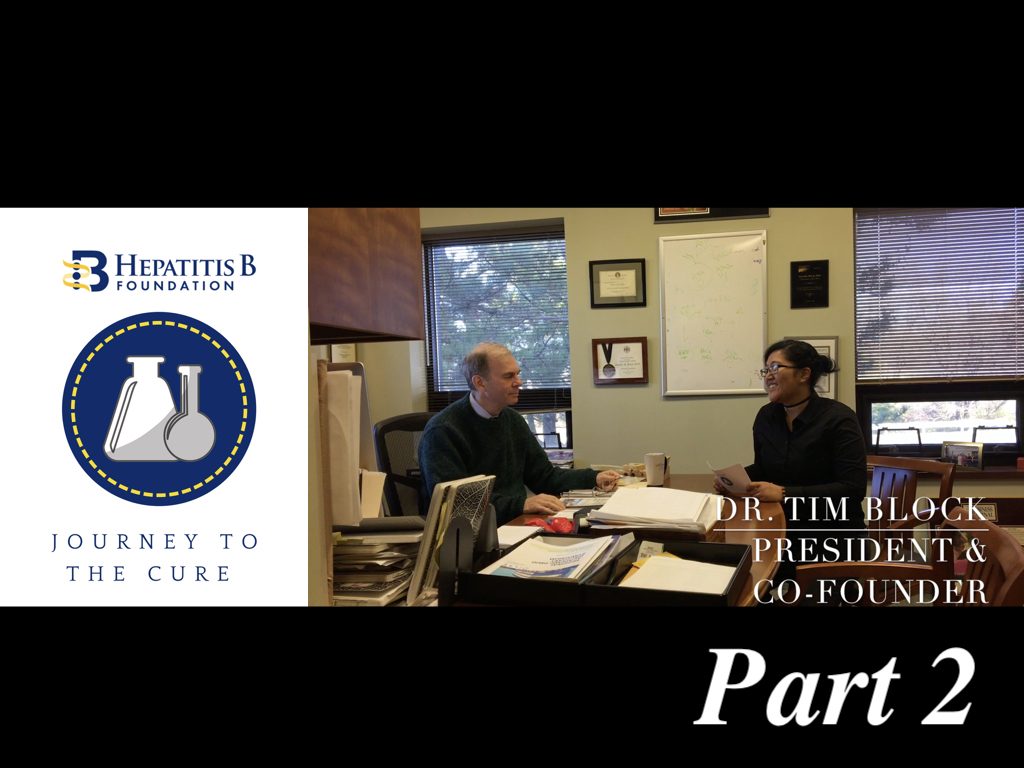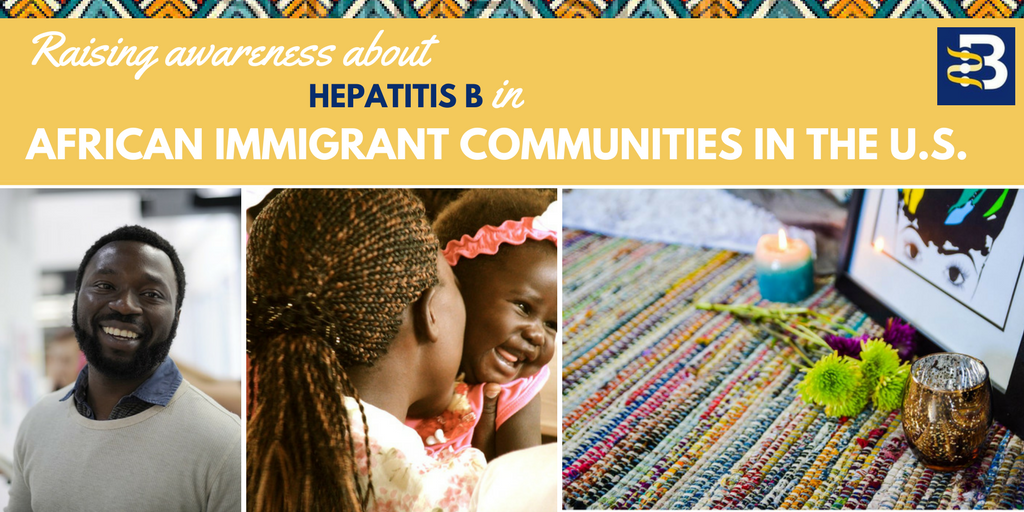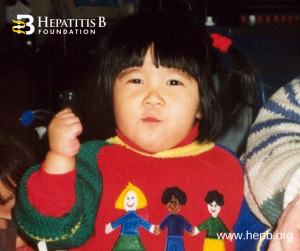
Welcome to “Journey to the Cure” This is a web series that chronicles the progress at the Hepatitis B Foundation and Baruch S. Blumberg Institute towards finding the cure for hepatitis B.
In the first episode (part 2), Kristine Alarcon, MPH sits down with Timothy Block, PhD, President and Co-Founder of the Hepatitis B Foundation, to talk about what a hepatitis B cure could look like in the future.
For any questions about hepatitis B, please email info@hepb.org
Disclaimer: The information provided in this audio post is not intended to serve as medical advice or endorsement of any product. The Hepatitis B Foundation strongly recommends each person discuss this information and their questions with a qualified health care provider.
Special Thanks:
Samantha Young
Music:
Modern – iMovie Library Collection
Script:
Welcome to Journey to the Cure! Every month, we’ll sit down with scientists from the Hepatitis B Foundation and the Baruch S. Blumberg Institute to talk to you about hepatitis B and efforts to find a cure for hepatitis B. There’s still a long way to go, but we’re here to walk you through our journey.
Timothy Block, PhD:
The Hepatitis B Foundation is now largely devoted to basically outreach and what I call human services or being there for people. We wanted, however, to keep pressure on research communities – to make sure there was a research organization. The Hepatitis B Foundation created a second non-profit organization, originally called the IHVR, renamed in Dr. Blumberg’s honor after he passed away; and that’s the Baruch S. Blumberg Institute. And that’s a group of research scientists.
Kristine Alarcon, MPH:
What do we need in order to find a cure for hepatitis B?
Timothy Block, PhD:
Well, we need more research. We need focused research and the community’s kind of coming together with a consensus. The Hepatitis B Foundation organized that workshop, which we published research priorities. We call it the “Roadmap to a Cure.” The more scholarly, conservative title for that is a research agenda- research priorities. We believe that if you follow that roadmap or you follow those lists, we will be most likely- I don’t want promise anything- but we will most likely to find if not a cure, transformational new medicines. But, I’m hopeful that they’ll be one form of cure. So you follow that roadmap, and we should get there.
Kristine Alarcon, MPH:
Thank you so much. This has been very insightful on what it looks like for the cure in the future. Thank you again for joining us.
Timothy Block, PhD:
Thank you again so much for the opportunity and what I want the listeners to know that the Hepatitis B Foundation is at the forefront of this work. We were there 27 years ago. We were there through the times when hepatitis B was being forgotten. The cure for hepatitis C has brought new focus on the problem of hepatitis and we were- and we’re here now. We’re sitting in an office that is in a building that has the Hepatitis B Foundation outreach and advocacy staff of nurses and public health professionals. We’re also here with as I said with 100 scientists, who are focused on looking for a cure for hepatitis B. We’re working for the commercial community, working with the academic community. But we’re here stimulating the research, promoting workshops, promoting seminars, but also doing our own research. So I hope that you keep that in mind and know that there are- there are a group of people who remain very focused on it.
Kristine Alarcon, MPH:
Thank you so much for joining us and we’ll see you on the next episode.
Questions? Please contact us at info@hepb.org.




 Have you been thinking about adoption for a long time or have been inspired by NBC’s show, This is Us, to adopt? Adoption is exciting! However, it can be nerve wracking and feel overwhelming. We at the Hepatitis B Foundation can help with one aspect of the adoption process – making sure you have accurate information about hepatitis B.
Have you been thinking about adoption for a long time or have been inspired by NBC’s show, This is Us, to adopt? Adoption is exciting! However, it can be nerve wracking and feel overwhelming. We at the Hepatitis B Foundation can help with one aspect of the adoption process – making sure you have accurate information about hepatitis B.